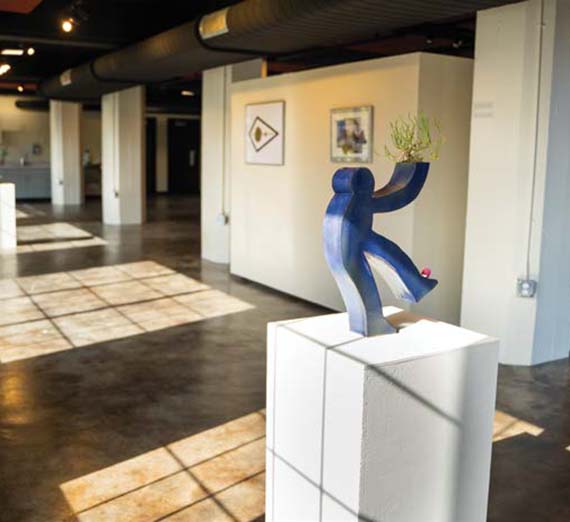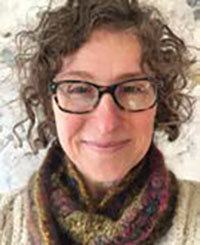The Paradox at the Heart of Service

Emilia wore her hair in two long grey braids. She was an energetic woman in her early 60s, always the first to volunteer for a chore. She liked to lead grace before meals – she had lived in a community of religious sisters for a while – and always ended her prayer with not one, but two Amens. I lived with Emilia only for a few months, but I will never forget her, because she helped me understand my place on this Earth.
I met Emilia during a year of volunteer service at Annunciation House, a Catholic house of hospitality for migrants and refugees at the U.S.-Mexico border. There, volunteers and immigrant guests live side by side, sharing meals and chores. Most of the guests are extremely poor, and many have experienced violence and deprivation in their home countries or on their journeys. Once in the U.S., they are thrust to the margins of society and must navigate unfamiliar territory with few resources and tentative legal status.
For decades, Annunciation House has sought to center the needs of these people, the “poorest of the poor,” in its daily work. Yet this intentional community did not come into being purely to ease their sufferings. The five young Catholics who founded the house in 1978 were looking to feed their own hunger, to satisfy their own need. They were asking: How can we live with greater purpose? How can we draw closer to the God we encounter in Scripture, who invariably identifies with the poor and powerless? Annunciation House, located mere blocks from the international border in El Paso, was their answer to that question. Founder Ruben Garcia, now the executive director, once told a reporter: “I see some who come to Casa Anunciación to volunteer, and their whole frame of mind is, ‘I’m coming from a middle-class family. Look how bad off these poor people are. I’m going to help.’ There’s a place for that frame of mind, but not here. The starting point has to be: ‘I’m seeking to feed my spirit and my soul and I’m going to be among the poor because they can help me feed myself.’ ”
To me, Ruben’s words illustrate the paradox at the heart of service – that we must go humbly to others to fully realize our own selves. The same paradox appears in Jesus’ challenge to his disciples: “Whoever loses his life for my sake will save it.” After living at Annunciation House, I believe that the most authentic way to enter into service is to recognize that I have a need – a need for meaning, for connection, the need to feel that my small efforts matter to the world. I arrived at the house in 2004, shortly after graduating from Gonzaga. Like many of my classmates, I opted for a year of service before continuing to graduate school. Little did I know how much that year would remake me. In college, I had been a “high achiever” – top grades, activities and accolades. But my past achievements were of little use at Annunciation House, where the tasks ran more toward sweeping floors, soothing babies and folding laundry. I wasn’t particularly good at being a volunteer; I lacked patience and perspective, and sometimes had difficulty tackling tedious chores with good humor. I soon found myself trying to emulate Emilia, to understand and channel her seemingly boundless energy.
As we spent time together, though, I learned that beneath her revving cheer was a deep blue sadness, a feeling of being unwanted. She had no family. Employers passed her over in favor of someone younger. The religious community where she’d lived for a time had dissolved as its sisters aged and passed away. In the evenings when chores were finished, I’d often join several guests on a bench in the patio, enjoying the cool evening air. Emilia would be the last one working, still washing out her dishcloth or cleaning the mop in the patio sink. I realized that – though I think she genuinely liked to be busy – there was also in her energetic pitching-in the desire to convince the volunteers that she was useful, that she was contributing. That she was not a burden.
To my surprise, I found myself relating deeply to her impulse. Like Emilia volunteering for chores, I too measured my own worth – or feared that others would – in terms of my accomplishments. I felt the constant urge to “do something constructive,” as my mother used to say. But eventually I came to understand that the real work I was here to do – if you’d call it work – was not the busy list of tasks that occupied much of my time, the cleaning and recordkeeping and serving of meals. It was the work of being present to each guest: their unique story, their hopes, their sorrows. It was to convey to Emilia that she was welcome in our house, that indeed this was her house – not because she cleaned it with such enthusiasm, not because she was productive or cooperative, but because she was a human being and this was her birthright: to feel herself a part of the family of human beings, to know herself welcome on this Earth.
As we finally sat together after chores were done, sipping Kool-Aid from plastic cups, I could tell her honestly how grateful I was for her presence in our house – how much I had learned from her example. We could both recognize a bit of ourselves in the other: the same insecurity, the same longing to be valued. And in that mutual recognition, we both found an acceptance we had been seeking. For if Emilia herself was worthy simply by virtue of her humanity, then surely I was too.
About the Author

